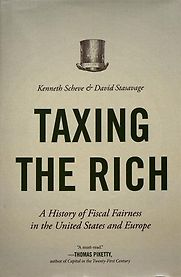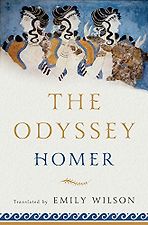Recommendations from our site
“It tries to explain episodes in which the rich have been taxed at very high rates. There are all kinds of theories you might put forward about that. Was it, for instance, to do with the widening of the suffrage and the rise of democracy, the idea being that a majority of non-rich voters will vote to tax the rich to extract money for themselves? Or was it because of some social consensus that such taxes were needed to address unacceptably high inequality? Scheve and Stasavage have a quite different explanation. They argue that the episodes in which we’ve taxed the rich particularly heavily have had a compensatory element and occur particularly during and after big wars, where there’s been mass conscription. The idea is that when the poorer bear some massive burden in pursuit of some collective goal, the rich have, in effect, been pressured or even felt it right to make a commensurately large financial commitment.” Read more...
“It tries to explain episodes in which the rich have been taxed at very high rates. There are all kinds of theories you might put forward about that. Was it, for instance, to do with the widening of the suffrage and the rise of democracy, the idea being that a majority of non-rich voters will vote to tax the rich to extract money for themselves? Or was it because of some social consensus that such taxes were needed to address unacceptably high inequality? Scheve and Stasavage have a quite different explanation. They argue that the episodes in which we’ve taxed the rich particularly heavily have had a compensatory element and occur particularly during and after big wars, where there’s been mass conscription. The idea is that when the poorer bear some massive burden in pursuit of some collective goal, the rich have, in effect, been pressured or even felt it right to make a commensurately large financial commitment.” Read more...






